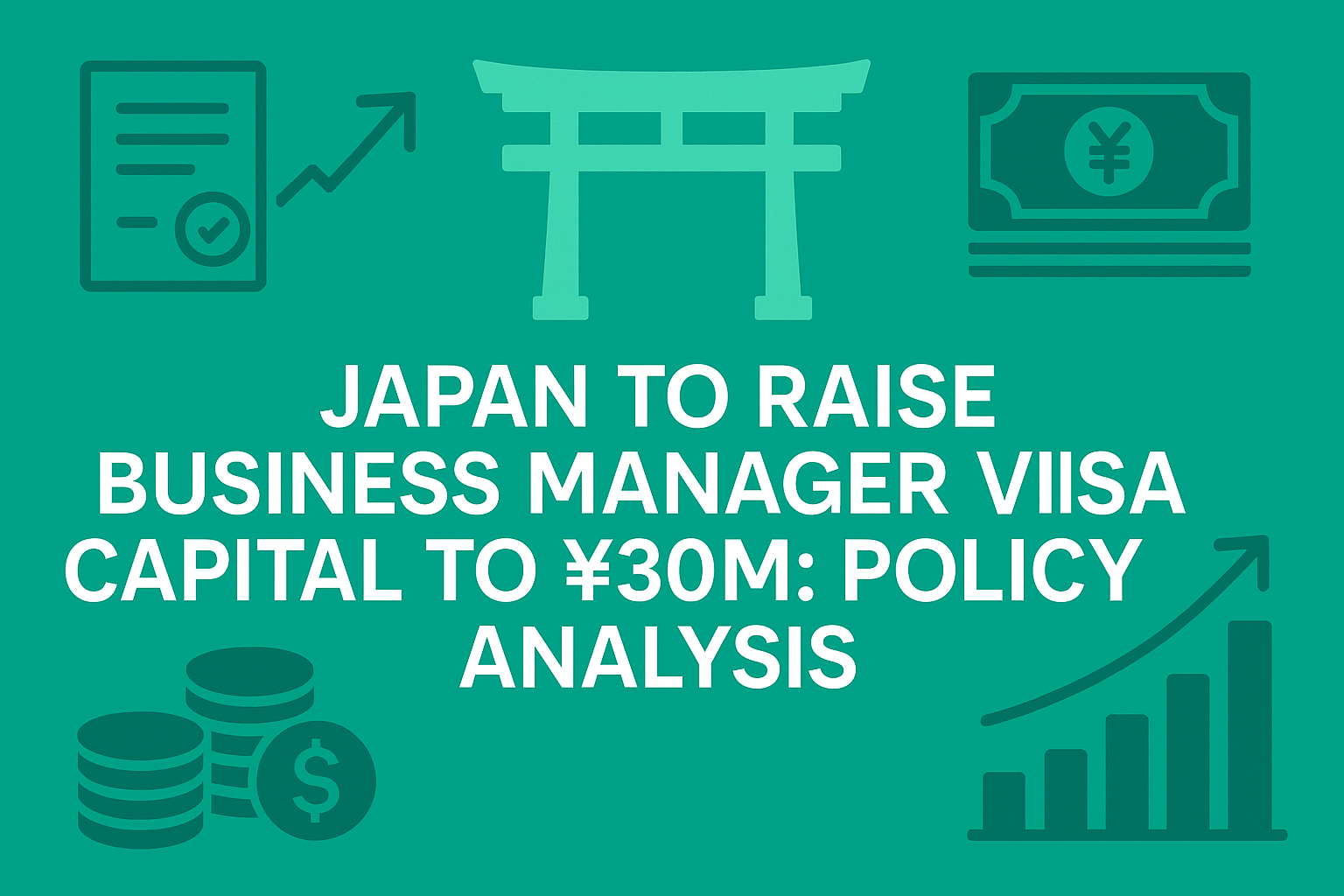Introduction
The Japanese government has announced a plan to significantly tighten the requirements for the “Business Manager Visa” for foreign entrepreneurs. The reform would raise the minimum capital requirement from ¥5 million to ¥30 million, mandate the employment of at least one full-time staff member, and introduce new conditions regarding managerial experience or educational background. The objective is to enhance the credibility of the system and prevent misuse.
This report examines the background, the current landscape of foreign entrepreneurship in Japan, the policy intentions, and the potential challenges associated with this reform.
1. Background: Why is Reform Necessary?
- Rise of Paper Companies
- Some foreign nationals have established shell companies with no real business activity to obtain residency.
- A common practice has been to deposit the required ¥5 million temporarily, secure the visa, and then withdraw the funds.
- Safeguarding Immigration Credibility
- Japan’s immigration frameworks, such as the Technical Intern Training Program, have faced international criticism. Allowing the Business Manager Visa to be exploited further risks undermining the credibility of the entire immigration system.
- Shift from Quantity to Quality
- The government aims not to maximize the number of entrants but to prioritize entrepreneurs with sufficient financial capacity and experience, who can make tangible contributions to the Japanese economy.
2. Current Profile of Foreign Entrepreneurs in Japan
- Small-Scale Businesses (Food & Services)
- Many foreign nationals operate restaurants, retail shops, and service-oriented businesses with relatively low startup costs.
- While these ventures enrich local communities, they are unlikely to meet the new ¥30 million threshold.
- IT and Startup Ventures
- Engineers from China, India, and other countries have established small IT firms, e-commerce operations, or development offices.
- Although they often have strong growth potential, their modest initial investment may exclude them under the new standards.
- Residency-Driven Enterprises
- Some individuals use the visa system primarily as a residency tool, with little to no genuine business activity.
- These cases are the direct trigger for the government’s reform.
3. Policy Intentions
- Preventing Abuse
- The reform seeks to eliminate misuse of the visa through shell companies or nominal business operations.
- Promoting Domestic Employment
- By requiring at least one full-time hire, the government ensures that the visa contributes directly to job creation in Japan.
- Enhancing International Credibility
- Involving certified public accountants or SME consultants in reviewing business plans adds transparency, reduces administrative burdens, and strengthens Japan’s reputation as a fair and reliable business environment.
4. Anticipated Challenges
- Loss of Diversity
- The reform risks excluding small-scale foreign businesses—particularly in food, services, and retail—that have enriched Japan’s cultural and economic landscape.
- Discouragement of Entrepreneurship
- A ¥30 million capital requirement, combined with employment obligations, may deter promising entrepreneurs. Competing hubs like Singapore, Hong Kong, and Dubai offer more accessible entry conditions, raising concerns about Japan’s competitiveness.
- Rigid Implementation
- Requiring managerial experience or postgraduate education could unintentionally exclude young, innovative entrepreneurs who lack credentials but possess high potential. This risks stifling innovation.
Conclusion
Japan’s planned reform of the Business Manager Visa represents an important step in strengthening immigration governance, preventing misuse, and ensuring that foreign entrepreneurs make meaningful contributions to the domestic economy.
However, the policy also carries significant risks: the exclusion of small but valuable businesses, deterrence of entrepreneurial talent, and a potential erosion of Japan’s international competitiveness.
To achieve balance, Japan must combine stricter requirements with flexible complementary pathways, such as startup support programs and highly skilled professional visas. Only by pursuing both quality assurance and diversity of entrants can Japan safeguard stability while also securing future engines of growth.


